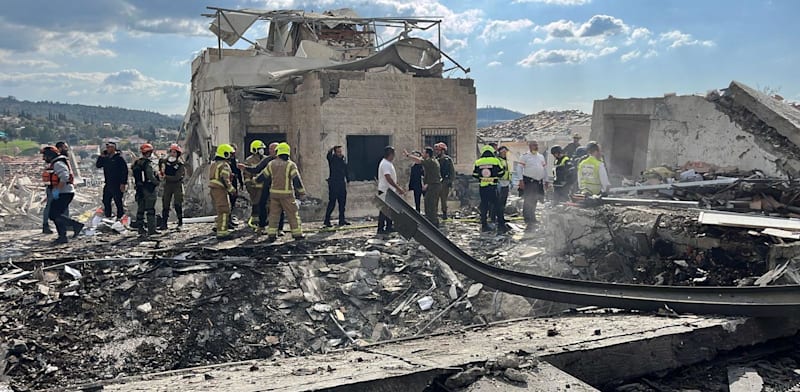On Monday, many analysts believe that the Bank of Israel Monetary Committee will cut the interest rate by a quarter of a percentage point after 14 consecutive interest rate decisions in which the rate was left unchanged.
The potential cut raises hope in several sectors of the economy that have suffered in recent years from the impact of high interest rates, especially the real estate sector. The higher financing costs, which have hit contractors and led to an increase in apartment prices, along with the more expensive mortgages that buyers must pay, have significantly damaged demand, leaving developers with excess housing inventories that have reached record levels.
However, the question arises as to whether the expectations that the market has placed on the interest rate cut are too high, and to what extent will a quarter of a percentage point cut revive the real estate market and end the stagnation?
Demand: “It all depends on apartment prices”
There is a close connection between interest rates and the real estate market, both in terms of financing costs for contractors and mortgage costs for homebuyers. However, senior economists claim that interest rate cuts, even several in a row, will not be enough on their own to revive eroded demand in the housing market.
Phoenix chief economist Matan Shitrit says, “Although the markets are pricing in about four interest rate cuts in the coming year, this is still a high interest rate environment relative to the market that operated for quite some time under exceptional conditions of zero interest rates. Therefore, even if the interest rate cut leads to a recovery on the demand side, we estimate that the recovery will be moderate, since the consumer’s ability to purchase an apartment is still relatively low due to the price environment, the required equity and the mortgage payments.”
Sigma Investment House chief investment officer Idan Azoulay agrees with Shitrit and explains that a renewed start in the housing industry depends largely on apartment prices. He says, “The demand exists, mainly because of the rate of population growth, but it is not being realized due to the high apartment prices. Sales in the market will not increase until we reach a point where prices are more attractive to those seeking apartments.”
Azoulay warns against the market’s optimism for a rapid interest rate cut: “Beyond the fact that a quarter-percent interest rate cut is not expected to dramatically change the stagnation in the real estate market, I do not expect the Bank of Israel to reduce the interest rate at a rapid pace,” he explains.
Azoulay refers to the challenging macroeconomic situation that Israel is facing, mainly in terms of the fiscal matters. “Although inflation has entered the Bank of Israel’s price stability target, the fiscal side still remains challenging. We do not have an approved state budget, and the proposal submitted by the Ministry of Finance does not seem to have a high chance of being passed, mainly because it is based on very optimistic assumptions that may turn out to be incorrect.
RELATED ARTICLES
CPI up 0.5% in October, while home prices fall again
Haifa tops home sales table for first time in decades
New home sales in Israel down 20%
Special offer homebuyers face moment of truth
“The political situation is also not conducive, and in my opinion there is no chance that the budget will be approved soon.”
In his assessment, the Bank of Israel will not act to significantly cut rates until these fiscal challenges are overcome. “The Bank of Israel may also cut the interest rate in January, but it all depends on the geopolitical and political situation,” says Azoulay.
Looking further ahead, Azoulay stresses, “Even if we see an interest rate cut of 0.75%, we must remember that apartment prices have increased by 40% in the last two years, so a lower interest rate will not necessarily compensate for the increase in prices, especially when real wages increased by only 3% from the end of 2022 to July of this year.”
Financing costs: “Thousands of unsold apartments”
On the supply side, Azoulay mentions that contractors are forced to deal with heavy financing costs as well as a sharp rise in construction costs (raw materials and wages) but cannot stop construction, since most projects have already been sold in the presale stages or include obligations as part of urban renewal projects. “Today, there are about 38,000 unsold ready-made apartments, which illustrates a clear excess supply.”
Shitrit emphasizes that the expected interest rate cut will lead to a fall in the prime interest rate and will gradually help with the financing costs of contractors, since most loans are linked to prime. “However, there are factors that may offset the relief – primarily the financing operators.
“Let’s remember the Bank of Israel has imposed new restrictions on the financing terms of contractors, in which it ordered an increase in the equity requirement in projects in which more than 25% of the apartments are sold, with a significant deferral of payment until the delivery date. “So while the cut in the prime interest rate will reduce financing costs for contractors, the rise in the number of financing deals of this type (10% now and 90% on delivery) may, on the other hand, hurt them and lead to an increase in the cost of the project.”
The bottom line, Azoulay insists, is that the apartment market is not balanced.
Recycling mortgages: “Worth at least checking if it pays”
One of the main questions on the expected upcoming interest rate cut is what effect it will have on mortgages.
Avi Yosupov, deputy chairman of the Mortgage Advisors Association, tells “Globes,” “If we examine, for example, a mortgage of NIS 1 million, of which NIS 450,000 shekels are in the prime track, the 0.25% interest rate reduction will lead to savings of about NIS 70 per month.”
Although this is a relatively small amount, in his opinion it is a good start and the more the interest rate declines, the more the savings will increase.
So when will we start to see more significant relief on mortgages? Shitrit says, “According to Bank of Israel data, the average mortgage today stands at about NIS 1 million, with an average interest rate of about 4.7% and an average repayment period of about 24 years. The monthly repayment today is about NIS 6,300, and if we assume that in the positive scenario the average interest rate will drop 1%, to 3.7% in the coming year, the monthly repayment will drop to about NIS 5,700, if all other variables are constant. This is already a more significant saving.”
Shitrit notes that between January and September 2025, we have seen 51,000 mortgages recycled. He says, “The main reason for the high amount of recycling is an easier repayment spread for those whose monthly repayments have hit them financially, Thus, as the interest rate falls, the amount of recycling is expected to increase, especially among borrowers who took out mortgages over the last two years.”
Yosupov agrees, “In recent months we have already seen thousands of mortgages recycled. Some customers preferred to stay with the same higher monthly repayment to shorten the loan term and save hundreds of thousands of shekels, while others chose to reduce the monthly repayment by NIS 200, 300 or 400.” He adds, “Anyone who has not yet completed a mortgage recycling must at least carry out a check to see if it is worthwhile. Even if they ultimately do not complete the recycling, it is important to know where they stand in terms of interest and understand if there is room for improvement in the terms.”
Published by Globes, Israel business news – en.globes.co.il – on November 19, 2025.
© Copyright of Globes Publisher Itonut (1983) Ltd., 2025.

























